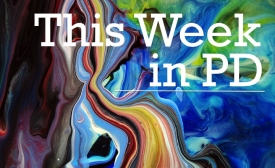australia

Creative tensions as art and diplomacy challenge each other for more innovative approaches to culture.
The executions of Andrew Chan and Myuran Sukumaran in the early hours of Wednesday morning present several tricky challenges for relations between Australia and Indonesia. The Australian government immediately announced it would recall its ambassador, Paul Grigson, and suspend ministerial visits. In a rare show of solidarity, the Labor Party and the Greens fully supported this. It is unclear at this stage if other actions might be taken.
Indeed, in the immediate aftermath of the brutal state-sanctioned killing of two Australian citizens, the shallowness of any trust between Jakarta and Canberra - between Australians and Indonesians - has been fully exposed.The expected recall of both ambassadors - theirs in direct retaliation to the unprecedented withdrawal of ours already announced - is as inevitable as it is regrettably, largely pointless. Ditto for other gestures of Australian unhappiness in the diplomatic sphere.
International aid groups and governments have escalated efforts to dispatch rescuers and supplies to earthquake-hit Nepal, but severed communications and landslides in the Himalayan nation posed formidable challenges to the relief effort.
Australia's approach to digital diplomacy is second-rate and entirely inadequate for a nation that sees itself as 'a top 20 country'. Despite an expanded social media presence, Australia continues to lag far behind other countries – large and small – that are investing serious resources into building up their digital diplomacy capabilities.
Six months after taking office, Indonesian President Joko Widodo is starting to step away from his predecessor’s foreign policy of keeping everyone happy. Widodo, known as Jokowi, criticized the United Nations and International Monetary Fund at this week’s Asian African Conference in Jakarta. He’s pledged to increase defense spending, ordered foreign boats seized for illegal fishing to be destroyed, and declined to pardon two Australian drug smugglers facing a firing squad, leading to warnings of damaged ties.
After a decade of swimming against the tide, the Australian Government is slowly engaging in the world of digital diplomacy. (...) Today, digital diplomacy is a foreign policy essential. We live in a world where state and non-state entities all compete for influence and power in the same online space.
Despite China’s impressive build-up of hard power from its manufacturing industry to an ever-increasing number of fighter jets and submarines, the country’s soft power or its inherent cultural or ideological appeal is in short supply. Many people remain suspicious or even fearful of a resurgent China.







